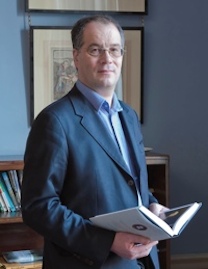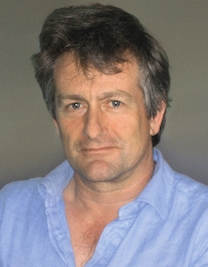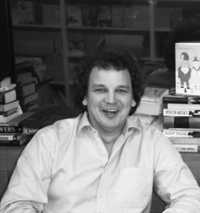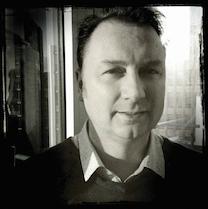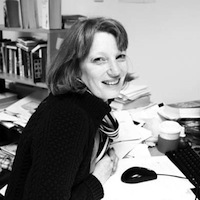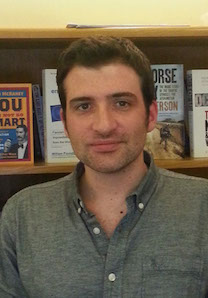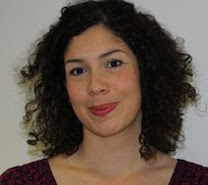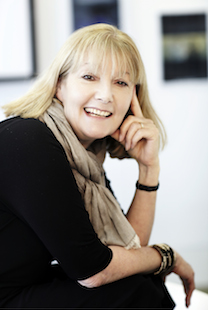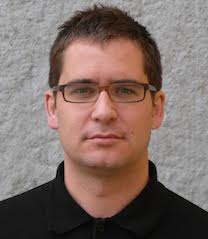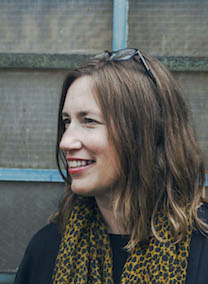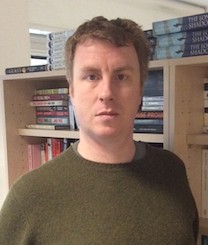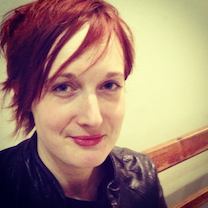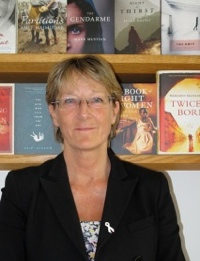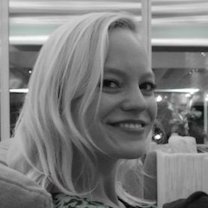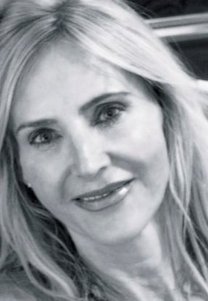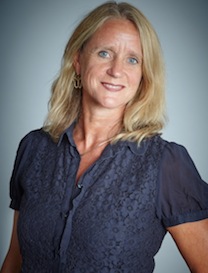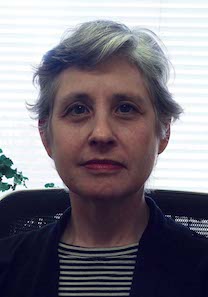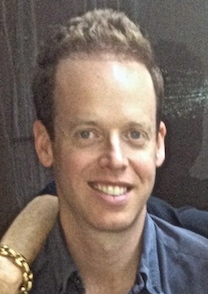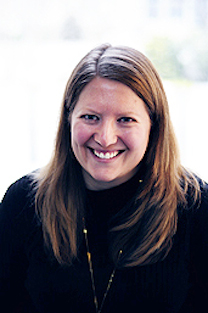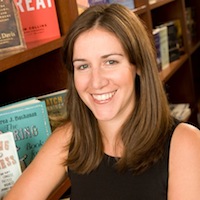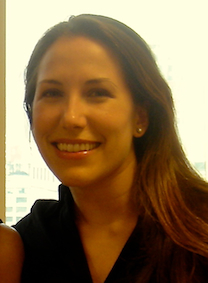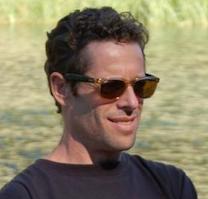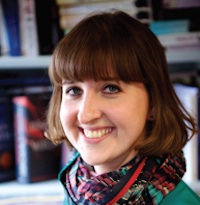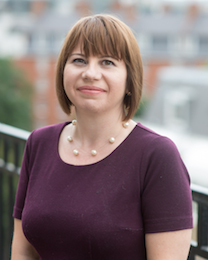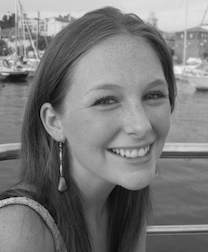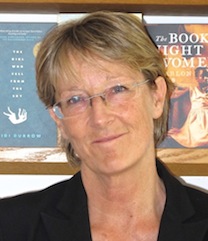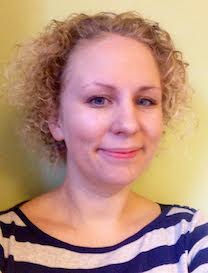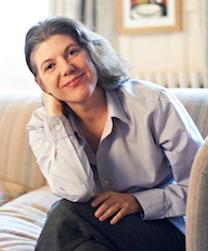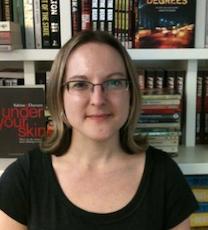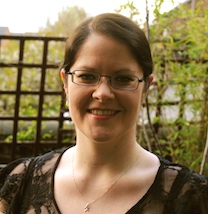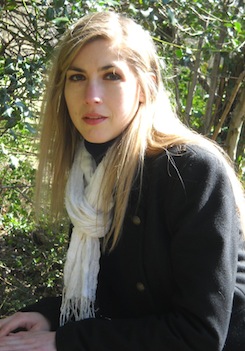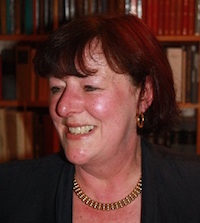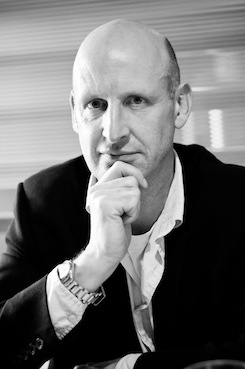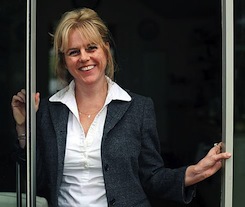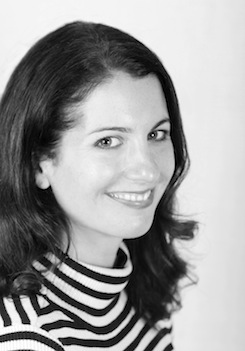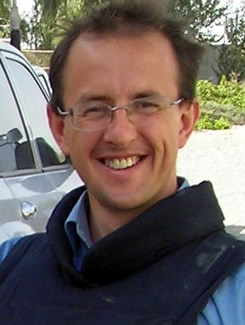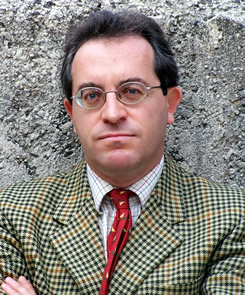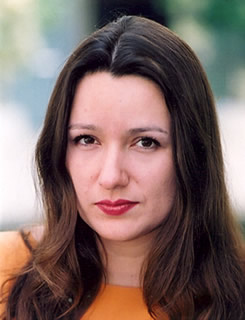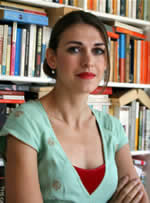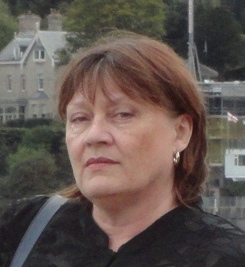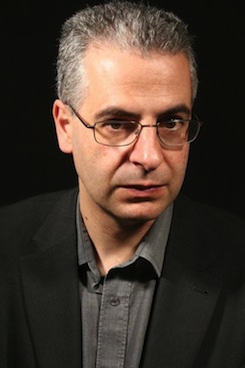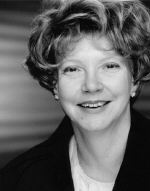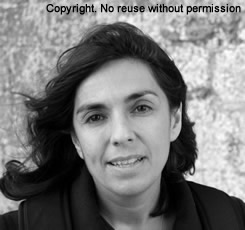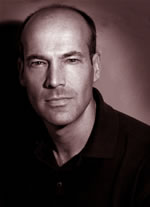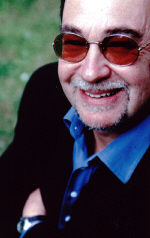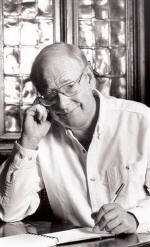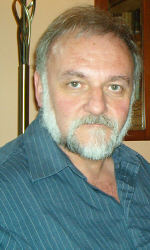Every relationship between an author and agent is different depending on the needs of the author and type of book. Here forty agency authors describe the relationship they have with Andrew Lownie and the agency.
Lynne Barrett-Lee
Those that know me well will also know that I am not much of a sports fan; I’m been known to ask which football team is wearing which ‘outfit’, which will probably tell you all you need to know on that subject. But there is no denying that sportspeople do give great quote. So while it’s self-evident that ‘talent wins games, but teamwork and intelligence wins championships’ I make no apology for quoting basketball legend Michael Jordan in pointing it out again.
It’s easy, as a writer, to feel you’re the proverbial lone wolf. (And, by extension, as ghostwriters, perhaps ones that howl at the moon, too). We blather on about being outsiders often enough, don’t we? We’re also frequently found whining about the solitary nature of our calling, and are often to be found milking the whole ‘I suffer for my art!’ line for everything it’s worth. (And, yes, that screamer is definitely staying put.)
The truth is, however, that once we make the key leap from being unpublished to published, we need to become team players almost by default. Though the world always loves a good came-out-of-nowhere-to-dash-off-a-bestseller story, experience has shown me it’s a long game and a considered one. That it’s almost always a combination of the factors mentioned above that makes for a sustainable career.
Which, for me, equals having both a brilliant, perceptive agent and, by extension (because a brilliant agent opens those all-important doors) finding oneself in the company of great editors. Those crucial elements - not forgetting the whole publishing team behind them - that will translate the talent bit into sufficient commercial success that you can keep doing the thing you love doing best.
In my case – and I am a ghostwriter these days, for the most part – that sense of teamwork is integral to my working life. In the first place, Andrew does the stuff that, being a flibberty-jibberty author-woman, I neither want, nor are able, to do myself. And I’m not just talking about finding his way round a twenty page publishing contract either.
Everyone knows that a good agent takes care of business, allowing us delicate flowers to avoid the stress of trying to quantify our worth, but in the six years Andrew has represented both me and some twenty three books, and counting, his input has been so much more diverse than that. He is a fresh pair of eyes, a mine of market information, a champion of our right to have reasonable expectations and a mover and shaker par excellence.
And though I’m not sure this constitutes ‘best practice’ for either of our circadian rhythms, he almost always responds to emails as soon as they’re sent, whatever-o’clock it might happen to be, seven days out of seven, and however much rambling, self-absorbed sturm and drang they might contain. Is there any greater quality an author would want in an agent? I doubt it.
Nicholas Best
Only bad authors are completely certain of their talent. Good ones know that they misfire occasionally, especially if they’re trying something different. The first of many publishing obstacles is to get your new idea or manuscript past Andrew. If you can do that, you can be reasonably sure that he will manage to sell it somewhere in the end.
The next task is to draft a business proposal in sales and marketing language. It’s the bit I hate the most. My first publisher was a wonderful old boy who had published George Orwell in his youth. He had no time for sales and marketing proposals. He acted on instinct and hunch. I have never had a better publisher.
Nowadays, unfortunately, corporate executives need to cover their backs. If a book flops, it has to be everyone’s fault, not just theirs. That means a business proposal carefully crafted under Andrew’s guidance, something that the suits can circulate and discuss at acquisition meetings before arriving at a committee decision. Hunch and instinct no longer count for much, which is why there have been no George Orwells recently.
If the corporates go for it, you need Andrew to negotiate the terms, unless you know what percentage to ask for in a back-end split. All too often, they won’t go for it because they can’t see enough profit to cover their overheads. In that case, you can go round them now and publish on Amazon instead. A greatly reduced price online means that you can shift a lot more ‘demand-weighted units’ (Amazon-speak for books) at a much higher royalty.
I have recently reissued several of my out-of-print books on Amazon with Andrew’s help. I have been in the Amazon Top 100 for both fiction and non-fiction. My novella Point Lenana, too short to be published conventionally, was Kindle Singles’ No 1 fiction promotion at the end of May. None of that would have happened if I had been trying to do it without an agent.
Nessa Carey
Picture the scene. You already have a demanding full-time job and for some reason decide it would be a great idea to write a book as well. That’s the situation I created for myself, in one of those examples of being too delightfully ignorant of what I was taking on to understand how insane it was.
I just wanted to write a book on a subject about which I felt passionately, and which I felt hadn’t been covered by anyone else. I had no experience of “proper” publishing at all. My nearest brush in the past had been scientific papers, and the occasional seventy word paragraph for a wildlife magazine. Hardly an adequate preparation.
Having looked at a few agents’ websites I thought that Andrew’s looked the friendliest (and if I am honest, he also needed the fewest chapters in the first round) so I followed the instructions carefully and sent off my submission. I was delighted when he accepted me, and didn’t realise how fortunate I was to get an agent so quickly. I blithely assumed this must be how it always works. Where ignorance is bliss……..
I realised quickly how lucky I was to have this agent though. He led me very patiently through various re-writes in response to his readers’ comments and once we’d agreed on a final version Andrew lined up interviews with various publishers. I was delighted with the final deal. The publisher was just right for me. They were a small company, specialising in non-fiction, and able to give me a lot of help in really polishing the book. A US deal followed quickly.
I love that I don’t have to get involved in anything contractual, or financial negotiations. It’s all handled for me, so I just receive the offers and say yes or no. The same is true with publicity opportunities that are sent my way. Even the emails that remind me I haven’t done something are gentle enough that I am not paralysed with guilt on receiving them.
Three years on and again I decided it would be a great idea to write a book despite working full-time. Far fewer re-writes confirmed for me that my original decision of working with people who could help a first-time writer learn to do things well had really paid off.
Deborah Crewe
What is it like having an agent?
Well, first of all it’s extremely glamorous. It’s worth having an agent just to be able to casually drop him into conversation. For example:
‘How do you find work?’
‘Well, sometimes my agent finds work for me.’
‘Wow, you have an agent!’
Second, it allows me to quote endlessly (to myself, under my breath) the funniest film ever, Tootsie.
George Fields: Where do you come off sending me your roommate’s play for you to star in? I’m your agent, not your mother! I’m not supposed to find plays for you to star in - I’m supposed to field offers! And that’s what I do!
Michael Dorsey: ‘Field offers?’ Who told you that, the Agent Fairy? That was a significant piece of work - I could’ve been terrific in that part.
George Fields: Michael, nobody’s gonna do that play.
Michael Dorsey: Why?
George Fields: Because it’s a downer, that’s why. Because nobody wants to produce a play about a couple that moved back to Love Canal.
Michael Dorsey: But that actually happened!
George Fields: WHO GIVES A SHIT? Nobody wants to pay twenty dollars to watch people living next to chemical waste! They can see that in New Jersey!
I’ve never yet known Andrew to shout ‘WHO GIVES A SHIT’. But he will tell me straight up when I bring him an idea that is like watching people living next to chemical waste. I hugely value this honesty. Like pulling off a plaster fast, it hurts a little, but it saves a lot of time.
Third, having an agent opens doors. Andrew is a brand. And his brand values, I think, are hard work, strong relationships, and quality writing. That means he makes me revise and re-revise my proposal until it is as good as it can be. It means he knows which editors are going to love my proposal. It means those editors tend to take the time to read it, because it comes from Andrew. Yes, Andrew handles the negotiations and the contract and the money, and that is fantastic because it would be fiddly and a bit awkward to do it myself. But that, for me, is the least of it.
What is it like having an agent? It is like having my own personal coach, clairvoyant, fixer, gamer, cheerleader. It’s like having a trusty guide through a strange and daunting landscape.
Roger Crowley
I have worked with Andrew for over ten years and four history books. Over this period the relationship has evolved in line with my writing career. At the outset, Andrew read my proposal, had his judgement checked with an experienced outside reader and took it on. This involved pitching it to a range of UK and US publishers, taking me on a series of meetings with interested publishers and conducting effective auctions.
Since then I have worked with the same UK publisher (though two different US ones) and the manuscript discussion tends to be direct with the relevant editor. Andrew pitches each new proposal to the publishers and works to improve the deals. He tries to dissuade me from ideas for books which he feels are unlikely to be sufficiently commercial or ones that deviate from the area of history in which I have built some reputation. His overall strategy has been to encourage me to develop a coherent profile (brand?) as a writer of history, though I’m not always inclined to listen. He purses his lips at the mention of writing a novel…
Andrew also works hard with sub-agents to squeeze every last opportunity for the books out of the translation market. It’s a good to see a little more money coming in from Korea or Brazil several years after the book was first published. He handles potential film and TV rights (we live in hope), suggests speaking engagements, passes on contacts and opportunities that are filtered through him and arranges occasional shared meetings with the UK publisher. From time to time I also like to have a face to face catch-up with him specifically to talk about the history and book market generally and potential future writing strategies.
Helen Croydon
The experience of being a first-time-author with no agent and a second-time-author with an agent were very different.
During the publication process of my first book Sugar Daddy Diaries, with no agent behind me, I and was bumbling around blind in an industry I knew nothing about. Is it ok to object to the front cover if I don’t like it? Should I just accept editorial changes or does the editor have time and resources to discuss them with me in detail? Is it ok to call my publisher yet again with a question about publicity? The second time around, with the publication of Screw The Fairytale, Andrew was behind the deal and I had a central point of contact to direct questions to.
Then there’s all the deal making, negotiating and spotting new opportunities, which authors usually shy away from! Andrew has been sending the manuscript to foreign agencies, chasing TV deals, flagging up speaking opportunities at literary festivals and even suggesting ghost writing projects. Of course it’s then down to the author to act on it, but without an agent to give an initial heads-up, many avenues of opportunity in the literary world end up being missed.
Plus, there’s an extra person to tweet about and recommend my books and to give a warm speech introduction at my latest book launch.
Patrick Dillon
My writing career has been unusually varied, ranging from serious history for adults, through children’s writing to fiction. Andrew hasn’t only been able to able to achieve excellent deals for all these books. He’s offered brilliant advice in choosing and shaping proposals. The starting point is clarity about what a book’s trying to achieve, whatever its genre. Andrew is invaluable in those early conversations. Who’s the book for? What’s distinctive about it? He brings clear thinking to the discussion, along with marketing nous and unrivalled knowledge of the trade. There’s no point expending time on an idea that’s unlikely to take off.
The same clear thinking helps shape the proposal. Publishers receive dozens of pitches, and it’s essential that what we make it clear what the book’s about, where the market is, and why people will want to read it. Andrew achieves his extraordinary hit-rate because he makes sure every proposal does the idea justice. If that means covering every base, it’s worth it.
Choosing where to send the proposal is very much one for Andrew. Success depends on his contacts, and his knowledge of each commissioning editor’s interest. When editors start to bite, it’s the agency that negotiates, and turns initial interest into firm offer and contract. It cuts in again when the book’s done. Publishers can’t always offer the marketing support a writer needs. Andrew has been brilliant in suggesting publicists and helping with contacts.
So Andrew is really part of a book’s life from start to finish. Long-term relationships between authors and publishing houses seem to belong to the past. For me, that continuity comes from the agency instead. Wherever my interest has shifted, Andrew has been ceaselessly encouraging. When an idea is being conceived, or a proposal shaped, in selling books and making deals, in helping when the process falters, and then giving my books the best chance in a highly competitive market – his support has been essential
Jane Dismore
I’m the ‘new girl on the block’ as far as being signed up by an agent is concerned. These days, when it seems everyone in the world has discovered that best-selling book inside them, many publishers won’t look at an author who has approached them direct, preferring to have the filtering process done for them. Those publishers who do accept a direct approach sometimes appear to think that an author has nothing better to do than spend the next aeon waiting for a reply, at the same time discouraging multiple submissions. It can be deeply depressing.
Enter the agent. Even then, the process is not for the faint-hearted or self-delusional. But with someone like Andrew, at least you won’t have to wait very long for a response. He replies to emails with impressive speed. He knows the market. He will tell it as he sees it, make suggestions on your submission if it needs it, and fight for better terms than the publisher seems prepared to offer. My next book is due out in September 2014, and I know he’ll be there to negotiate serial rights and do all the magic tricks to ensure I get the best deal.
Jeremy Dronfield
I’m a ghostwriter, biographer and book-doctor. It sometimes happens that the author of a biography, a history, or any other kind of non-fiction, having done the research and sketched out the book, struggles to bring out the qualities that would make it commercially viable. With a biography, for example, there may be a failure to capture the narrative drama of the subject’s life or the complexities of their character in a way that will captivate publishers and readers.
If Andrew believes that there is potential for a commercial book, but it’s just not coming through, no matter how many revisions the author does, he brings me in. If all parties agree, and if I believe passionately in the book, I come on board.
Sometimes it’s just the writing that’s lacking. In that case my job is simply to ghost or doctor it for finesse and readability. But more often the project evolves into full co-authorship; I go deep into the primary material, helping with the direction of the story and the analysis of the subject, and pursuing fresh lines of research. This is when the job is most satisfying – when I bring together my dual backgrounds in fiction and academic research. With me involved, a book gets the imaginative, vivid writing you’d expect from fiction, combined with the rigour of scholarship.
My recent books include the story of Robert Trimble, a WW2 pilot who undertook a secret mission to rescue POWs on the Eastern Front; a biography of Moura Budberg, the Russian spy who fell in love with a British agent during the Revolution and was haunted for the rest of her life by the shattering betrayal she suffered; the life of Peter Watson, millionaire art patron and doyen of the gay scene of pre-war Paris, who was murdered in his bath by his jealous lover; and the incredibly moving life of James Barry, a Victorian surgeon who was revealed after death to have been a woman, forced to disguise herself in order to pursue a career in medicine.
I always develop a close bond with my co-authors, but Andrew remains a crucial presence throughout, from inception to placing with a publisher, right up to delivery and beyond, as linchpin between me, my co-author(s) and publisher.
Piu Eatwell
I discovered Andrew completely by chance. Knowing nobody in the publishing industry and with the vaguest idea for a book, I simply emailed the list of agents in the ‘Writers’ and Artists’ Handbook’, working through it alphabetically until I got bored at the letter ‘m.’ Thank goodness I didn’t give up at the letter ‘k’! Otherwise, the course of history….at least, my small personal corner of history….would have been irrevocably, and no doubt depressingly, different.
As it was, I was thrilled when an email bounced back almost immediately from Andrew, responding to my book idea with enthusiasm and a raft of helpful suggestions. The reply was so quick that – coupled with the fact of it being a late hour on a Saturday – I felt sure this must be a new agent, desperate for work. I was absolutely stunned on checking Andrew’s credentials, to find that he is in fact the leading agent for non-fiction. Over the subsequent years, I have come to expect – but never fail to appreciate – this phenomenal rapidity in response.
I am now two books down the line from that initial book, and find that my professional relationship with Andrew has developed apace. Of course, he ticks all the boxes that a top literary agent should: he checks all contracts with minute attention to detail, and immediately highlights any areas of concern in the small print; he chases unpaid bills; he reviews all book proposals and makes incisive comments, before they are sent out.
However, Andrew is much more than all of this. He is my first sounding board for any new book idea. Whatever the subject, he is bound to have read every single competing book in the field, know if anything else like it will be coming out in the future, and – on at least two occasions so far – has even acted as agent for the author who wrote the previous leading work on the subject. He also has an unfailing nose for the latest ‘new thing’ in any given genre, an instinctive feel for the market and for what publishers are looking for. If Andrew predicts that, say, murders with a European wartime backdrop are the next ‘big thing’ in historical true crime, then he will invariably be correct. Most of all, you know that if Andrew believes in your book, he will fight to the death to make it a success in the market. Which means that you, the writer, can make yourself a cup of tea, switch off the mobile phone, and do what you always wanted to do…..write books.
Duncan Falconer
I have written one auto-biography and nine novels. When I first decided to write a book it was without knowledge of any single part of the process. In Andrew, this was all resolved. He guided and supported me through each and every step. I was not a book businessman, nor did I particularly want to be. I had no interest in the process that followed the actual piecing together of words. It was a whole new world with so much mystery attached. Andrew secured me the publisher and the price for my work. He managed my expectations and helped me realise my value. He kept me informed of any opportunities related to my writing, including such things as a lecture tour on a cruise ship or appearing at appropriate book fairs.
My books have been published internationally thanks to his efforts and he continues to offer moral support and guidance on all things related to the promotion and exposure of my work. He also played a significant role in the selling of the film rights to my books. As a result, I’ve dropped off the book writing for a few years while I write movies, and Andrew is still there for me, keeping me informed, encouraging me, and letting me know just how wide the door remains open for when I’m ready to get back to books. To misquote the proverbial cliche, in the world of books, ‘I wouldn’t go anywhere without him’.
Eleanor Fitzsimons
It’s said that we live our lives in seven-year cycles. The physiological basis for this is the seven-year process by which we regenerate almost every cell in our bodies, becoming new in the process. A widely held belief that we also undergo fundamental spiritual and emotional changes at this interval grants us licence to shrug off our past and set out in a new direction.
I have a habit of reinventing myself. Having worked in the corporate world for many years, I veered away to write features and opinion pieces for newspapers and magazines. A passion for history sent me back to university. I had this notion to write a book about some of the women who have been overlooked. My involvement with Andrew turned this notion into a publishing deal.
I honestly didn’t know where to start but I had the good sense to send Andrew an unformed outline and a sample of my work. He responded that same day with vital words of encouragement and a template that transformed my notion into a commercially viable proposition. The feedback from him and from his readers was invaluable: professional, forthright and constructive. I felt reassured that anything sent to a publisher with my name on it would be scrutinized first. Andrew knows exactly what publishers want because he asks them.
Andrew responds promptly to every email I send, even the daft, angst-ridden ones. He encouraged me to enter for prestigious prizes, one of which I won. He opened doors that would have remained firmly locked had I knocked timidly on them. He secured a deal for me, scrutinized the contract, negotiated changes in my favour, and had the advance in my account in time for me to pay my spiraling research bill. I simply couldn’t do this without him.
Bobby Friedman
Andrew has an important role in almost all aspects of the writing process, from start to finish. For every idea I have that gets off the ground, there will have been countless others that have been forced to face up to the harsh scrutiny of Andrew’s opinion. With the benefit of Andrew’s eye for what works and what doesn’t, the bad ones get cast aside. Meanwhile, Andrew helps to come up with his own suggestions and works with me to improve promising proposals. This includes arranging meetings with editors to brainstorm particular ideas, often over a glass of wine.
I always leave the mechanics of negotiating a deal to Andrew. The fantastic thing is that I know Andrew will get a proposal to the right people for consideration. Often, I am amazed at how he manages to get a vital change into the contract, or persuades the publisher to go just that little bit higher.
When it comes to writing the book, Andrew is my first port of call for comments on the initial draft, providing a useful sounding board before I send the manuscript to the publishers. He is on hand to advise on all the issues that crop up, from negotiating a serial to any points of disagreement with the publisher.
When I give my advice to potential authors, one question that often follows is whether it’s worth giving up a proportion of your income to an agent, when he or she doesn’t have to sit down and slog at getting the words out onto the page. In my experience, an agent is cheap at the price: simply, I couldn’t do it without Andrew’s help and guidance.
Adrian Gilbert
For all but the biggest names an agent is essential in gaining the attention of the publishing world. Overwhelmed by a torrent of manuscripts from would-be authors, publishing editors have turned to agents to act as quality-control gatekeepers. Increasingly, editors will only accept submissions from agents, so that acquiring an agent is often the first step in getting your book published.
My own agent, Andrew Lownie, has certainly acted as a key to opening publishing doors, but he – like other agents – performs many more functions to help the beleaguered author. Being a writer is a lonely business, and simply knowing that someone else is batting for you can be a great consolation. A good agent will know far more about the publishing process than an author, and he or she can guide the author through the jungle of book contracts as well as suggesting further book ideas and any number of other revenue-developing ideas. Put simply: to get ahead, get an agent.
Cathy Glass
As a reasonably well known author I receive many emails from new authors, seeking advice on having their first book published. One question that frequently comes up is do they need a literary agent? I reply without hesitation that they do, and a good one. I then go on to explain: that while some publishers accept submissions direct from the author, most mainstream publishers do not. That the agent will know which publishers are most likely to be interested in their type of work, saving the author a lot of time and frustration from countless rejections. I explain that the agent will also negotiate the best possible contract for the author, at home and overseas, and then ensure royalties are paid on time, as well as optioning film rights. That they make suggestions for marketing and publicising the books as well as keeping an eye on distribution. A good agent will also give the author valuable feedback on their work, and keep them up to date with developments in the publishing world, leaving the author free to do what they do best – write.
Andrew and I have been working together for nearly ten years, he was my first agent, and I can say that I wouldn’t have enjoyed the success I have without him.
Ian Graham
When I was a magazine journalist in London a lifetime ago, I remember someone who held a senior position in the publishing company I worked for telling me he assumed that I wanted his job. He was visibly shocked when I told him I didn’t. It was seen as a criminal lack of ambition. But I didn’t aspire to be a manager, dividing my time between budgets, meetings and business lunches. I wanted to write and that was all. I wanted to write in the same way that someone might want to breathe.
The desire to write is a simple itch to scratch, because anyone can write. However, writing with the expectation of being published is an entirely different challenge. The business aspects of writing and publishing require a set of skills and knowledge that many writers don’t possess, or don’t care to possess. Creating ‘the product’ is just one part of the process. The product has to be commercially attractive, and writers often need advice on that. To sell it, publishers have to be approached by someone whose judgement they trust. Then there are contracts to be negotiated and percentages to be haggled over. There may be extraordinary people out there whose abilities stretch all the way from the solitude of the writing room to courting publishers and dealing with the small print on contracts, but I’m not one of them.
Literary agents free writers from the parts of the publishing business that get in the way of writing. My agent, Andrew Lownie, has given me invaluable advice on producing book proposals and making my books more commercial. He presents and promotes my work to publishers and deals with contracts. And every morning I say a little prayer that he will look both ways before he crosses the road!
Randall Hansen
The basis of any book, and particularly books aimed at both an academic and commercial market, is a long lonely slog in the archive and the library. Different authors have different relationships with their agents, but mine involves much close work with Andrew at the start of a book. I generally send Andrew an email with one or two ideas, and he lets me know if he thinks they have intellectual (and commercial) appeal. I follow up with a ten-twenty proposal which provides a summary of what the book’s content (or what I imagine the content will be, as a proposal precedes some research, and much changes in the writing). Andrew provides comments and criticism, and I revise. Andrew then sends the revised version to one-three anonymous readers who provide their views; I revise the proposal again in the light of their comments. The much-revised proposal then goes off the publishers. After much discussion, and if I’m lucky multiple bids, we move to contract. This is the most exciting part of the work; after it, the hard toil beings and some two years later there is a book in the shops.
For a commercial book to be picked up, there has to be a convergence of multiple interests – the agent, editor, the bean counters in marketing, and of course the author. For those reason, a commercial book is much more challenging than a traditional academic book (though such a book is challenging enough), as the latter, safe in the knowledge that library sales will cover the costs of publication and the pittance that passes for an advance, requires only editorial and peer support. Andrew really is instrumental in seeing this process through. It is in theory possible for authors to capture the interest of editors without an agent, but it’s extremely difficult. Equally importantly, whether they are great commercial successes or not, my books are simply better books because of the attention Andrew gives to them.
Catherine Hewitt
For a new author, an agent - a good agent - is, I believe, essential. In my own case, I came to Andrew’s agency with an idea and boundless enthusiasm. However, my background was academic. Writing biography for general readership was an entirely new domain. I knew I could write and research a thesis, but writing biography is so much more than that: it is a commercial business. This is where Andrew came in.
I feel sure I am not the only new author to enter the profession with much confusion and a plethora of questions. The most immediate of these are practical. Where do I begin? How many pages should a proposal be? How many books should I include in my competing literature section? Which ones? How long should the chapter summaries be? Then there was the invaluable editorial feedback on the proposal itself. Once the proposal was complete, Andrew’s good working relationships with editors was simply indispensable. With the agency on board, I had access to the people who could bridge the gap between me sitting writing at my computer and actually seeing my book on the shelf of a high-street bookshop. And the importance of having someone to turn to who understands and can negotiate the ins and outs of a publishing contract can hardly be overstated.
However, there is also, dare I say it, immense spiritual support to be gained from the agency; if Andrew takes you on, you can be sure that he believes in your work. An author can enjoy the quiet reassurance of knowing that the technicalities (the contract, negotiating, the rights, etc) are being dealt with by someone with experience and competence. Andrew makes this seem so effortless that it is all too easy to take for granted. As a writer, I want to focus on the creative business of writing. Andrew makes this possible.
One day, I receive an e-mail from Andrew with an attachment. He is in Frankfurt and has just spotted a book he thinks might be of relevance to my work. That’s useful, I think to myself. But then I remember - Andrew deals with scores of authors, editors and publishers every day. And yet he remembered what I was working on and took the trouble to keep me up to date of something new on the market.
This personal attention is why I am with Andrew’s agency.
Kris Hollington
Andrew is Al to my Dr. Sam “Quantum Leap” Beckett (without the cigars and womanizing) and he makes sure I jump from one life to another with barely a pause for breath. And while I’m working away with the latest agency recruit, Andrew (also Genie to my Aladdin) is securing foreign, audio and film rights (amongst all the usual day-to-day goings-on of agency life) and sending me leads for other work (one such lead has just turned into an article for Newsweek).
Obi-Wan to my Skywalker, Andrew also checks proposals and advises on improvements before he takes them off to publishers for editorial scrutiny. Editors know that when they have a Lownie proposal, they have the book’s complete blueprint.
Every now and again I’ll come across someone who needs an agent – one co-author (a former CID detective) knew an air stewardess who wanted to write a book. It wasn’t one for me to ghost but of course I had no problem recommending the agency. Now after some agency magic, Cabin Fever: The sizzling secrets of a Virgin air hostess, by Mandy Smith (published by agency imprint Thistle) is in the bestseller charts.
It seems to me as though editors, talented and patient, are hard-pushed these days. They increasingly have to divide their time between greater numbers of books in various stages of production, not to mention battle their way through numerous ridiculous legal restrictions (my own bugbear). I’m certain they wish they could spend more time on the actual manuscript but moneysaving publishers have (in some cases) cut resources quite drastically. I do my best not to give them too much trouble.
In essence, the agency does a damn fine job and I never have to worry about contract details and negotiations; I know they’re in safe hands, leaving me to crack on with proposals, books and articles – to write. Like Marty McFly and “Doc” Brown, it’s the perfect partnership (you can’t always predict the future but you know you’re in for a fun ride).
Mary Hollingsworth
Andrew is not a nanny, more the wise pilot who uses his expertise to steer an author’s work into port. Apart from the practical tasks expected of an agent - negotiating with publishers, checking contracts, sorting royalties, and so on - he offers support at all stages of writing a book. Much depends on the proposal and he ensures that these are written in a way calculated to appeal. As an academic historian, I value his advice on what tooic might make a popular book, and on the best way to approach it. He is meticulous in his attention to detail and immensely hard-working, full of ideas and always ready to exploit new opportunities. Best of all, with Andrew you can expect a reply to your email within hours rather than days.
Christian Jennings
Writers do not seek too hard to be understood, often enjoying a vaguely mysterious elitism, and as a consequence, they often feel misunderstood. A famous Polish nineteenth-century novelist is reputed to have said that “my wife doesn’t understand that when I’m looking out of the window, I am actually working terribly hard.”
So any person who makes it their profession to represent, handle, look after, sell, market and deal with not just one, or ten or twenty writers, but two hundred, on a daily basis, must certainly understand them, what they do, what makes them tick and what they want. Andrew Lownie does this with remarkable success. His authors and his agency work well together for four principal reasons.
Firstly, both author and agent can cooperate in establishing just the right subject matter for each book, its commercial chances, and its optimum form of expression and structure.
Secondly, the agency formula for writing submissions proposals, and having them read by an agency reader, makes the author hone the marketing, publicity and editorial potential of a book long before it gets to an editor. When the time comes to submit it to publishers, Andrew’s canny, focused and up-to-the-minute industry knowledge of which editor where likes what kind of books, at which point, why, and for how much, means that the proposals’ chances in the marketplace are maximized.
Thirdly, Andrew is consistently informed of, and always breaking new ground in such areas as e-publishing, audio, TV and film rights.
Lastly, and other authors comment about it frequently, but Andrew’s speed of response to emails is such that his writers never feel too out on a limb. I remember one summer afternoon in Turin when I needed a scanned page from my latest book contract emailed over by Andrew, so I could forward it to the American tax service. The amount of time that elapsed from writing the email of request to Andrew, to receiving the email scan back in my inbox? Eight minutes.
Rachel Kelly
I have long thought the most influential people in life are early adopters. Andrew is an early adopter par excellence. He took a bet on me, a first-time writer, ahead of anyone else. Before I rang Andrew, I had tried approaching a couple of publishers on my own. I got nowhere. My letters weren’t acknowledged, my calls weren’t returned. I now realise that publishers rely on agents to pre-select the manuscripts they are going to read. It is an illusion that your submission will get plucked from a slush pile. It won’t. Don’t believe any publisher who tells you so. Publishers rely on agents to do the choosing for them, and rightly so.
Andrew worked with me ahead of submission to improve my book. He gave me invaluable editorial advice which most publishers neither have the time nor inclination to give. They understandably wish for a manuscript which needs little work. Andrew told me I had too many chapters – I had 32, most non-fiction books have around 18, and that each chapter is between 4,000 and 5,000 words. He told me I needed a new title. He told me how to write my submission and then improved it. And all of this before the book was even sold!
He accompanied me on our ‘publishing tour’, negotiated a deal with Hodder & Stoughton, changed several key elements of the contract, and has been a font of support and advice ever since. All of which I value hugely, but the thing I most value is that he made my book better than it would otherwise have been and thereby got me a publisher as good as Hodder. My dream of being a writer came true and it wouldn’t have happened without Andrew.
Shannon Kyle
If someone asks me if you need an agent to be a writer, I always reply: ‘No you don’t absolutely HAVE to.’ It’s very possible to publish online and I know of ghosts who sort publishing deals directly with publishing houses, independently with no agents involved. It can happen. But if you would like to progress your career further, have someone to bounce ideas off, give honest feedback and deal with all the minutiae of a publishing deal then having an agent is really a very good idea.
As a ghostwriter, sometimes a person will approach me with an book idea, either through word of mouth or my website and if I think it might have legs, I will run it past Andrew with a phone call or email. If we think a story will work the next step is to write a synopsis. The more thorough, gripping and easy to read it is, the harder it will be for a publisher to turn it down easily. On other occasions Andrew will hear of a project and if he thinks as writer I am a suitable fit he will pass on details and away we go again.
The next step is we all meet an interested publisher together to discuss the project and then offers are made. As a writer you have to place trust in your agent that the very best financial deal is being obtained. During the process if any problems arise, your agent speaks on your behalf and when the book is complete they cheer lead at the end.
Frank Ledwidge
I am the author of two books on our recent wars in Iraq and Afghanistan; I got lucky, quickly, with the responses of readers and reviewers to the books. But as they say you make your own luck, and mine was made when I was referred to Andrew by a friend. Anyone reading this will know, and those who don’t hopefully soon will, how hard it is to start out being published. It’s a bit like the selection courses they do in the military; you get to one checkpoint, exhausted but exhilarated at having achieved something significant only to be told ‘see that peak over there-the one on the other side of the valley, got it? OK, compose yourself; off you go!’ And off you go again. With Andrew, though, or indeed any first-class agent you’ve got someone running next to you helping with the navigation, as well as supplying hints as to how you might save some time and energy and do what you are doing better.
People reading this will have understood that for an author an agent is really essential; all the ‘Starting out as a writer’ books tell you that an agent is necessary. What is not so obvious is that any old agent will not be sufficient. You need someone who is savvy, wise whilst also being able to listen to your ideas and add some more. A good agent will say ‘That’s not going to work’, as well as ‘Good idea, get on it!’
You need to understand that beginning as a writer is also lonely; there’s no getting away from that. I don’t know how Andrew does it, but when you ring him up, you’re the focus; and the writing life looks far more doable after such a discussion than before it. From speaking to many authors who have the ‘necessary’ agent, rather than a ‘sufficient’ one, I know that this is what separates Andrew from the common run.
David Long
A good agent has always been crucial when it comes to dealing with the commercial side of a deal but increasingly these days having an agent is more or less essential for anyone hoping even to start a conversation with a big publisher, many of whom will no longer consider an author working on his or her own. More than this, however, anyone sitting alone in a room all day needs someone knowledgeable to share ideas with and to bounce ideas around before they go any further. Agents are ideally placed to know what might or might not sell, and better able than most writers to identify the right publisher for a particular project or - delicately - to suggest shelving the project entirely if its time has not yet come or has already gone. Like most authors I like to consider my books to be just that - my books - but eventually the truth dawns. A good book is always a collaborative project, and while an author will share many objectives with a publisher (assuming he has the right one) the value of this seems to emerge only once the manuscript is well underway. Personally I’ve always needed an ally onside long before this stage, and for nearly a decade Andrew has provided the support, the encouragement and the detailed industry knowledge which coming to authorship from 25 years of journalism I know I lack.
Sean Longden
As a writer I want to write: I don’t want to worry about when I’m going to be paid or think about what a publisher wants. Of course those are essential questions but it’s nice to have someone there to answer them for you.
When I come up with a new idea (and I’ve had many more ideas than I’ll ever write books) I want it to be fresh, vibrant and full of all manner ground-breaking material. I want it to be what I consider to be a great book. I can’t be constrained by looking along the shelves at Waterstones and thinking ‘How can I write one of these books?’ If I’d started my writing career by doing that I would never have been published. I need to think ‘These are all boring – I’m going to do something much better’.
Now, while that is good in theory, the real world is a very different place. It’s a place where publishers want writers to give them what they know they can sell, yet are also desperate for something new. And that’s where an agent comes in. I need someone to say ‘That’s a very good idea but what about throwing in X,Y or even Z, to make it more attractive to publishers’. The agent shouldn’t burst the bubble of joyous enthusiasm, felt by every writer who has that light bulb moment and announces their new book is going to be the biggest seller since the bible. Instead the agent is there to help mould the book, encourage the author to turn a flight of fancy into something every publisher will be fighting over. Does it always work? No, but when it does work, it’s a magnificent thing.
Perhaps the perfect agent should be somewhere between a sensuous muse, seducing all the best ideas out of a writer, and the world’s most honest accountant, making sure the writer has the time, space and – rather importantly - finance to come up great ideas.
Teena Lyons
In recent months I have interviewed dozens of other ghost writers for my forthcoming book Complete Guide to Ghostwriting. I found a surprisingly broad cross-section of views on everything from the best way to work with authors, to how to structure a working day and to what contributes to the success of a project, or otherwise. However, there is one aspect of the job where there was near unanimity: a feeling of dread over producing book proposals to present to publishers. Perhaps, if we all had our way, we’d pop in half a sheet of A4 saying something along the lines of: it is the best story you’ve never read, you’d be a fool not to buy it. And that is why we need agents.
Andrew has been my first and only agent, so I can’t speak for the industry as a whole, but the quality in him that is most important to me is the demand for perfection at the proposal stage. Having been brought up in a family where both parents had agents, I’ve always ‘got’ the idea that they take a percentage and negotiate a far better deal that you’d ever have secured yourself. That, to me is a given.
What I value is his judgement at the proposal stage. It has not been unusual for a book proposal to go back and forth between us a number of times. Each time, he will make insightful, astute suggestions that improve the final product. It is not easy to re-write, polish and hone a proposal, particularly when there is no guarantee that it will be picked up and I will be rewarded for my time. However, by going through this process, I am far more likely to succeed. Like anything worth having in life, it is tough, painful, occasionally frustrating, but the rewards are worth it.
Neil McKenna
If you want to be a writer then you need an agent. It’s a simple and inescapable truth. For all those stories of overlooked masterpieces picked from slush piles in publisher’s offices which go on to be world bestsellers, the truth is that for ordinary writers like me, having an agent is a massive advantage.
One of the hardest parts of the process of becoming a professional writer for me was finding an agent. I approached lots of agents. Half the time, I didn’t even get the courtesy of a reply. Once, when I spoke to the agent of a good friend of mine, I found the woman’s tone so hostile and terrifying, that I didn’t pursue it any further.
I came into Andrew’s orbit after reading a short article in ‘Writers’ News’, a magazine for amateur and aspiring writers, the gist of which was that Andrew Lownie was looking for writers with interesting non-fiction projects. I thought to myself, ‘I’m a writer – of sorts – and my project is interesting (or at least, I think it’s interesting)’, so I took the plunge and wrote to him.
Andrew wrote back almost immediately. We met and he took me on. It took Andrew the best part of four years or so to sell my book on Oscar Wilde. He was indefatigable in his efforts and carried on, long after I had resigned myself to not selling the book. It’s an illustration of what Andrew does for his authors. Without Andrew’s bulldog determination, my book on Oscar Wilde would not have seen the light of day. As it is, it’s still in print eleven years on.
Apart from dealing with and resolving the day-to-day complexities of contracts, overseas rights, e-book hassles, copyright infringements and byzantine royalty statements that make no sense, Andrew is importantly a key player in the creative side of my writing. He is a distinguished biographer in his own right which makes him almost unique agents because he knows what you’re trying to do creatively from the inside.
Andrew’s instincts are sure. He has a feel for the business of publishing and a feel for books and writing. I value his opinions enormously. Most importantly, I know he is on my side and that is a very comforting feeling when the going gets tough!
Clare Mulley
My first biography, The Woman Who Saved the Children, was a labour of love. When I started writing it I had little idea how publishing worked, or even how to structure the book. Fortunately Andrew did. Andrew, and his team of readers, helped to guide the development of the book, and then he secured my first publishing contract.
Since then he has hugely helped to develop my career. I am now ‘an award-winning biographer’ with my latest book, The Spy Who Loved, translated into three languages, out as an audio-book, and optioned by Universal Films. I review for The Spectator and History Today, write articles, give talks and, occasionally, appear on radio and TV. I could never have achieved this without Andrew.
Sometimes Andrew’s help is very simple; he gives a reliably fast reply to an emailed query about a contract or an interview. Sometimes his help is more profound. Knowing my interests, it was he who suggested the subject for my second book, Krystyna Skarbek, aka Christine Granville, the first woman to work for Britain as a special agent in WWII. At first I baulked at the idea – it felt like a blind date, and I wanted to find my own subject. But Andrew was right and it turned out to be a great honour, as well as a great adventure, to research and write Christine’s story.
Several of my writer-friends have agents who sound very lovely. They have long lunches together and talk about everything under the sun. Andrew is not like that. We do meet occasionally, and have been known to have lunch, but both of us are very busy. I have three children, and I don’t live in London. What I want and need is a very focused agent who is respected by the best editors and publishers in the UK and overseas; has excellent contacts in film and TV; a great team of readers who can comment on my developing book proposals; and the commitment to me that means I know they will respond to my queries promptly and wisely, and come up with new suggestions that I had not considered. Andrew provides all this, and I have learned to trust his judgment and value his advice immensely.
Susan Ottaway
Andrew has been representing me for three years – the best years of my writing career so far. My first book was published 20 years ago with the help of an already established author but, although I managed to find publishers for my subsequent work, it was an uphill struggle. I wanted to be a writer but found myself becoming more of a sales rep, selling my ideas and myself as an author without really knowing how best to present either. As an individual it was hard to get a deal of any kind, much less a good one.
Having an agent, especially an excellent one like Andrew, has changed everything. He not only listens to my enthusiastic ramblings, he makes suggestions for possible books and then discusses ways to present the ideas to their best advantage and even suggests research facilities and people to contact. He’s a hard task master when it comes to writing proposals and often rejects my first attempts but he is right in what he says and I can see that the version which eventually gains his approval is so much better than my original offering. He is always encouraging and constantly reinforces the good parts while seeking to improve those that are not so good so I never feel too disheartened. The number of books he places with publishers is amazing and yet, although he works so hard, I hardly ever have to wait for a reply to an e-mail or to talk to him on the phone and he is always helpful and friendly. I really feel that Andrew, however busy he might be, is more than an agent, he is a friend who is looking out for me and I feel privileged to be one of his authors.
Nick Pope
The first thing an author looks for – or should look for – in a literary agent, is good advice. Andrew Lownie is a published author himself, and having operated on both sides of the industry, has invaluable experience to pass along. At the early stage of the authorial process, in conjunction with a network of ‘readers’ who have expertise in just about every subject and genre you could imagine, Andrew will help with invaluable guidance on crafting a synopsis in such a way as to maximise the chances of getting a deal. More fundamentally, he’ll help with the delicate business of working out which ideas should be aggressively pursued, and which should be quietly dropped.
There are many different strands to the work of a modern literary agency. All authors are different, but in my case, Andrew has done far more than simply negotiate deals for my five books – two of which made the Top 10 hardback non-fiction list. He’s negotiated serialisation deals, translation rights, a film/TV option deal for one of my sci-fi novels, and much more besides. I emigrated to America in 2012 and wondered if this would be an issue. It wasn’t. My latest book was published by a US publisher, and in parallel, I came onboard with the agency’s new imprint, Thistle Publishing, which can handle e-books and print-on-demand.
I should make special mention of the agency website. Andrew uses it to share some of the knowledge and experience that he’s amassed, and also publishes guest articles from other people in the publishing world: authors, ghostwriters, and even commissioning editors explaining what kind of books they’re currently looking for. In parallel with the “How to Submit” section, this is just about the most valuable advice available to authors, be they novices or ‘old hands’.
Linda Porter
I rely on the agency to handle the ‘nitty-gritty’ of contracts and royalties and I’ve also found that Andrew keeps a keen eye on potential competition. His unobtrusive support, over many years, is particularly valued at times of personal or professional uncertainty. Writing is a lonely occupation and it is good to know that the agency will be there for you when you need it. Times are changing in publishing and Andrew is well-abreast of all that is going on.
Katharine Quarmby
Andrew is a benign presence in my life as a working writer and journalist, always encouraging me to work a little harder and be that bit more ambitious. I can hardly say no, as he and his partner on his fiction list, David Haviland, work so hard for their authors - both in the traditional sphere of meeting publishers and visiting book fairs, but also on social media and exploring new genres as agent-entrepreneurs.
Since I first met Andrew, when I was working as a correspondent at the Economist in 2006, I have published two non-fiction books with him, (Scapegoat and No Place to Call Home) and branched out into Kindle Singles - one memoir, Blood and Water about my search for my Iranian birth father - and my first fictional piece, Aftermath, about my experiences as a producer in Rwanda, after the genocide. We are now about to publish another fictional Single, again based loosely on historical fact, about my mother’s family in Yugoslavia, during the First World War, and their links to Gavrilo Princip.
Andrew has also encouraged me to explore new genres - I have spent much of this year writing my first ghost project, under his careful eye. He and David have also sold the rights to my memoir and my Rwanda story to Audible and introduced me to the good folks at Newsweek, where I am now a contributing editor. It is a hugely productive relationship - and it has to be, as publishing and journalism change and have become more competitive and more dependent on the agent and the individual writer marketing themselves. Andrew and David, at Thistle, their publishing arm, are a fantastic team. I feel I couldn’t be in better hands in extremely challenging, but exciting times for British journalism and publishing.
Neil Simpson
If you’re better at words than figures then you need an agent like Andrew Lownie. If you’re a bad negotiator and hate haggling about money then you need an agent like Andrew Lownie. If you want to carry on making a living in an increasingly difficult publishing environment then, well, you probably get the drift.
In my ideal world I’m given a subject, a deadline and a decent contract to sign. Then I go away and get the job done without having to waste a second on any legal or financial questions. Writing can be tough, even when your subject is great fun. So why make it worse by fighting those sorts of battles on your own?
I rely on Andrew getting my ideas, proposals and indeed my name in front of the right people. I rely on him extracting the best deal he can from them. I like him going the extra mile by aiming for TV and film rights on the books we’ve done together. And I know he’s always looking for the next good deal. So what would I change? Nothing at all.
David Stafford.
Why bother with an agent? is a question I’m sometimes asked. It still puzzles me given that it certainly comes from people who’d never hesitate to employ a realtor to buy or sell a house, or a lawyer to negotiate a legal issue. But I bite my tongue and say instead something along the lines that while a writer can produce a text it takes an agent to help transform it into a saleable book that that can make money. And that if you’re in the business of writing- and a business it is- you have to think of it as a team affair. You dream up the idea for a book; but before you’ve even written it, it’s the agent who tells you whether it’s likely to sell or not. In fact, it might even be the agent who comes up with the idea in the first place. Then you write up a proposal, and it’s the agent who gives you the vital critical feedback that leads you to revise and improve it, perhaps several times over. It’s the agent who then sells it to a publisher in what is a highly competitive market; without an agent it’s virtually impossible to catch the eye of a commissioning editor. And of course it’s the agent who negotiates the best possible contract that will earn you both some serious money and protect your interests in what is a complex business that only experts can master. I’ve been with Andrew Lownie’s agency for over twenty years, and through his close personal involvement with me and my books Andrew and his team have delivered superbly well. I write the words. He turns them into the money. What more could one ask?
Nicola Stow
I was relaxing on a beach in Portugal when Mandy Smith’s memoir, Cabin Fever: The Sizzling Secrets of a Virgin Air Hostess, reached number 11 on Amazon. I ghosted this book so, obviously, I was thrilled - and it was the perfect excuse to order a large Del Boy -style cocktail complete with mini umbrellas and sparklers.
But as I downed my drink and worshipped the sun, Andrew, David and Mandy, along with other industry individuals, were working behind the scenes to generate mass publicity for Cabin Fever. The book was first published in Australia and, thanks to the agency’s imprint, Thistle, we were then able to publish Cabin Fever in the UK.
As the book went live, Andrew worked his magic, securing serialisation deals with two national newspapers. A good friend and fellow ghost , Doug Wight (former News of the World Books Editor), then joined the team and was responsible for writing a cracking serial for the Sun newspaper. In fact, it was Doug who introduced me to Andrew - a brilliant move, I must say.
As the publicity mounted, Mandy hit the shops - a few new outfits were required for television interviews. She also found herself dealing with newspaper journalists and radio show hosts. In order to help organise Mandy’s hectic media schedule, Andrew brought another agency ghost and publicist, Emma Donnan, on board, which led to even more publicity.
As I’m discovering, there’s a lot more to this book-writing business than many people imagine. Even when the book is published the hard work continues. Promotion is the key, as we proved with Cabin Fever. A few days after that wonderful Amazon moment, while I was still sunning myself in the Algarve, I received an email from Andrew. He’d just sold North American rights for Cabin Fever to Penguin. I think I’ll have to buy him a large cocktail next time I see him.
Peter Thompson
In an emergency, there’s always the SAS – the Special Andrew Service – to tackle all manner of problems. For ten years between 1998 and 2008 I roamed the globe each year on an around-the-world ticket writing books on World War II. Andrew would receive an urgent phone call or email from New York or Sydney or Singapore or Crete relating to a lost air ticket (in the days before e-tickets), a lapsed visa, depleted funds, missing page proofs and so on. The great machine behind the purple door in Great Smith Street would swing into action and in what seemed like a matter of hours the problem would be solved. No matter what the time difference or how complex the issue he always seemed to be there and a concise reply would wing its way back to my hotel.
Andrew not only suggests subjects for my books, finds a publisher, deals with the contract, edits the ms before submission and manages the money, he also offers an outlet through his own imprint, Thistle, which began life back in the 1980s with a smart box set of John Buchan’s work and is now in the expert hands of David Haviland. Now, Andrew, about the cover for The Private Lives of Mayfair….
Mei Trow
I still dine out on my first meeting with Andrew. He was then with a large London agency and was going solo the following week. Did I want to stay with them or go with him? I chose to go with him – the best writing decision I ever made. Years down the line – he introduces me as his ‘oldest writer’ but I’m not the sort to hold a grudge! – I am still being spurred on by his enthusiasm and publishing savvy.
When preparing a proposal, Andrew always reminds me that bullet points are Good Things, so here are a few –
• Andrew works 24 hours a day, 7 days a week. (So do I).
• Andrew knows everybody!
• Andrew is in tune with the market and has a nose for a good story.
• Andrew is infinitely patient, not just with me, but with all those who contact him with a book in them, no matter how deeply hidden it might be.
Good agents are like hens’ teeth
![]()
